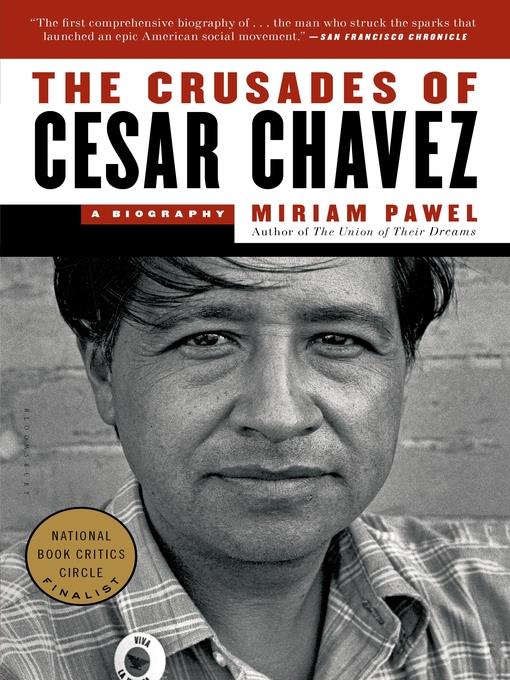
The Crusades of Cesar Chavez
A Biography
کتاب های مرتبط
- اطلاعات
- نقد و بررسی
- دیدگاه کاربران
نقد و بررسی

February 17, 2014
In her second book on Chavez, Pulitzer Prize–winning journalist Pawel (The Union of Their Dreams) turns away from the United Farm Workers organization to offer a comprehensive portrait of its founder, a “poor, brown, and homeless” child whose career as a “eccentrically charismatic” community organizer saw him join his idol Gandhi in the pantheon of celebrated nonviolent activists. Chavez, often remembered in murals as a solitary hunger striker, receives greater contextualization by examining his long and complex relationships with his associates, many of whom were interviewed for this work. Some relationships are particularly revealing, as when his own lifelong plea that his followers “refrain from violence” is contradicted by a tolerance of violent activism of his “troublemaker cousin.” Chavez comes across as a shrewd leader with a “willingness to endure” hardship for la causa, yet was also demanding and increasingly authoritarian and suspicious of his colleagues later in his career. Particularly intriguing is Chavez’s little memorialized relationship with the Synanon cult group, from whom he zealously appropriated “authoritarian tactics” of group therapy for his own commune, La Paz, throughout the 1970s. Pawel’s clear, accessible prose befits a subject famous for his plain rhetoric, ensuring a broad readership can appreciate this valuable exploration of Chavez’s unique legacy. Agent: Gloria Loomis, Watkins/Loomis Agency.

February 15, 2014
An exhaustive study of the life and work of iconic labor leader Cesar Chavez (1927-1993). In a follow-up to her previous book about the United Farm Workers (The Union of their Dreams, 2009), former Newsday and Los Angeles Times editor Pawel examines Chavez's transformation from a dedicated advocate for the rights of the poor and exploited to a corrupt leader charged with misappropriating funds and dictatorial rule over the union he founded. The author shows that Chavez was a man of his times. Despite his tarred reputation as a union leader, his legend still inspires young Hispanic workers with his slogan, "Si se pueda"--yes, it can be done. The child of itinerant farm laborers who was forced to drop out of school to work in the fields, Chavez found few opportunities after his return home after service in the military. Eventually, he found work in the lumberyards. In Delano, Calif., his hometown, Mexican-Americans were at the bottom of the social pyramid. Chavez joined the Community Service Organization in Los Angeles and quickly became a leading member. The CSO led a voter registration drive, ran English classes and set up a credit union. Organized by a priest and a local community worker, it was a chapter of the national network of community organizations launched by Saul Alinsky. When their voter registration campaign stalled, Chavez, with Alinsky's backing, founded the UFW and began a campaign to organize grape pickers after the grape growers moved to import undocumented Mexican workers and force down wages. Chavez recruited outside support from the broader liberal community and students and launched nationwide boycotts. As a result, writes Pawel, "Mexican Americans once shut out of power...[have] become the establishment in venues that had once been bastions of Anglo power." A warts-and-all biography of an important figure.
COPYRIGHT(2014) Kirkus Reviews, ALL RIGHTS RESERVED.

October 1, 2013
A Pulitzer Prize-winning editor who has worked for "Newsday" and the "Los Angeles Times" and author of a book about Cesar Chavez's movement, "The Union of Their Dreams", Southern California-based Pawel offers what's billed as analysis rather than hero worship. Big West Coast promotion.
Copyright 2013 Library Journal, LLC Used with permission.

























دیدگاه کاربران